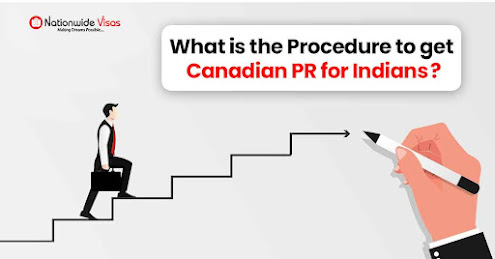Canada, one of the top immigration destinations in the world, is renowned for providing equal opportunity to all. Canada offers everything necessary for a higher quality of life, including top-notch infrastructure, outstanding education, a wealth of work options, and opportunities for personal development. Additionally, one of the reasons the nation welcomes a sizable number of immigrants each year from all over the world is because of its immigration-friendly legislation.
Here is a guide on how millions of individuals from over the world can apply for Canada PR visa and relocate to Canada from India.
Costs Involving Canada PR
Visa
The Canadian government has established the fees associated with the immigration procedure; however the amounts still vary because of changes in exchange rates. The detailed breakdown of the costs associated with submitting an Indian application for permanent residency in Canada is provided below.
- Application Fee for PR visa – 825 CAD
- Application Fee for Secondary Applicant (spouse/parent) – 825 CAD
- Application Fee for each dependent child (Below age 22)- 225 CAD
- Right of Permanent Residence Fee -500 CAD
- Language Proficiency Test Fee (IELTS) – 15, 500 INR appx.
- Medical Examination Fee- 5,500 INR appx
- Police verification Charges – 1000 INR appx
So, if an applicant is moving to Canada alone, they must spend roughly INR 1 lakh, and INR 2 lakh if they intend to bring their spouse. In addition to this, the candidate should consider the fees they will have to pay immigration consultants if they want their assistance.
Processing Time for
Canadian PR Application
Once an applicant obtains the Invitation to Apply, the Canadian PR visa is typically handled from India in around six months (ITA). Given the volume of applications the Canadian government gets each year, it is uncertain when they will receive the ITA or how long it will take for Indians to obtain PR in Canada. To avoid delays, candidates must make sure their applications are entirely accurate and comprehensive. Other complicated categories may take up to a year to process, whereas the Express Entry Program completes applications in six months.
Canada PR
process from India through Express Entry
Step 1: Complete ECA- To demonstrate equivalency to Canadian schooling, candidates must get an Educational Credential Assessment (ECA) certificate.
Step
2: Language test- Pass a language test to demonstrate your command of any or
both of Canada's official languages, English or French. Government-approved
language tests must be taken by this applicant.
Step
3: Create an Express Profile- Create an Express Profile in the Express Entry Program and submit an application through one of the three federal economic
immigration programmes.
Step
4: Submit a PNP application (optional)- Candidates may also submit a PNP
application through Express Entry. It grants 600 CRS points if the certificate
can be obtained.
Step
5: Get an ITA- Then, higher-ranked profiles are given an ITA to use within 60
days to apply for a PR visa.
Step
6: Complete background and medical checks - The applicant for this position
must get both a police clearance certificate and a medical certificate (PCC)
Step
7: Submit final application- Canada Immigration application undergoing assessment
Application for a PR visa will be assessed by IRCC. If there are any further
needs in this phase, the candidate must be prepared to give the requested
information.
Step
8: Receive CoPR - The candidate will be given a CoPR (Confirmation of Permanent
Resident) at this stage following a favourable assessment of their application.






